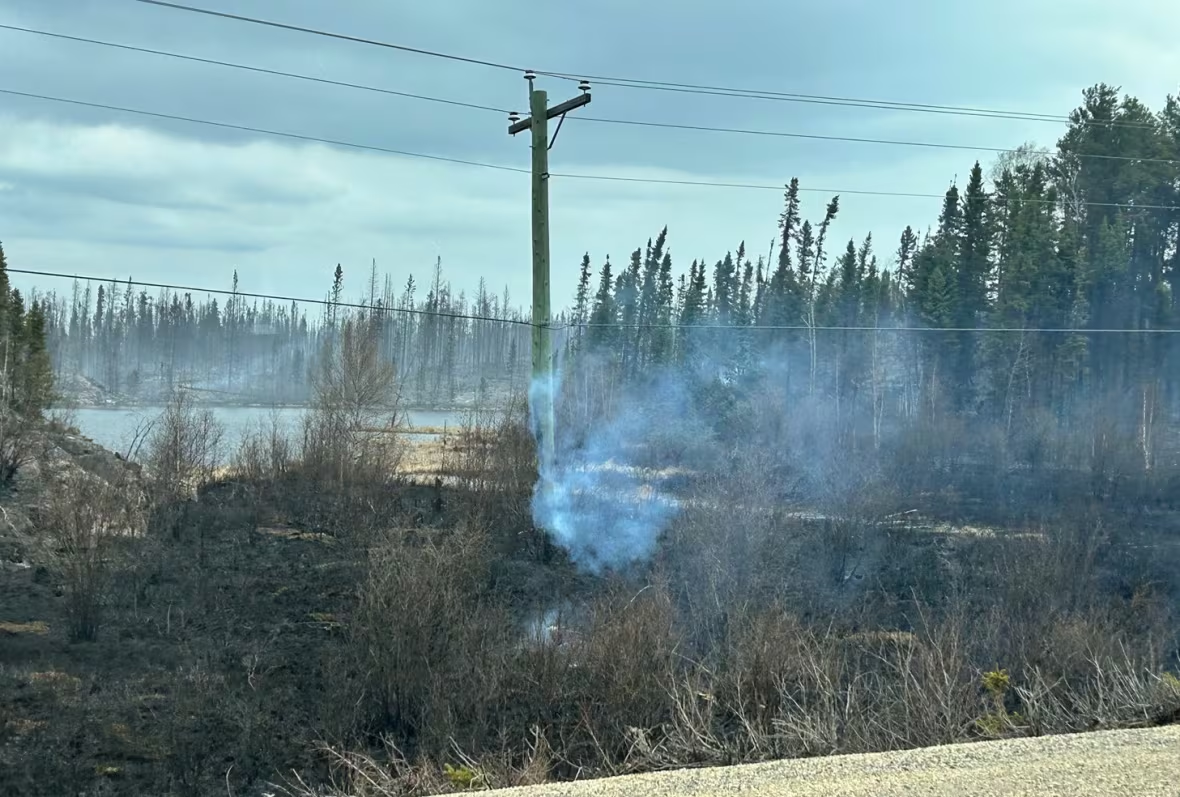A large-scale evacuation is in progress at Bunibonibee Cree Nation as an out-of-control wildfire rapidly approaches the northeastern Manitoba community, forcing thousands to flee.
The Canadian Red Cross reported that the First Nation requested assistance on Tuesday, prompting evacuation efforts in the remote, fly-in community. Evacuation flights began on Wednesday morning, with residents being relocated to Winnipeg, Brandon, and Thompson.
“Our team is collaborating with the community to ensure that everyone who needs to leave is safely evacuated,” Jason Small, a spokesperson for the Canadian Red Cross, told CBC News on Wednesday.
Chief Richard Hart of Bunibonibee Cree Nation estimated that between 2,700 to 3,000 residents are currently in the community. While most are being evacuated, a few individuals are staying behind temporarily to manage critical infrastructure and assist with emergency efforts. They are expected to be evacuated in the coming days.
“Our priority today is to move as many people out of the community as quickly as possible,” Chief Hart said.
According to provincial data, the wildfire was first detected on August 4 and has since grown uncontrollably, reaching over 5,700 hectares as of Wednesday’s latest update.
Local firefighters have been working tirelessly to create a buffer zone and protect buildings in the fire’s path. However, strong winds from the south earlier this week pushed the flames directly toward the community, leading to the current emergency.
Thick smoke from the wildfire has also shrouded Bunibonibee Cree Nation, occasionally clearing due to shifting winds, according to Chief Hart.
“It’s been a fast-moving fire, and it’s currently estimated to be just five miles away—very close to us,” he said.
As of Wednesday afternoon, provincial officials reported that the wildfire was approximately 10 kilometers south of the community. Bunibonibee Cree Nation, formerly known as Oxford House, is located about 577 kilometers north of Winnipeg and 185 kilometers southeast of Thompson, Manitoba.
Chief Comments on the Fire.
Manitoba’s Wildfire Director, Earl Simmons, described the forest surrounding the wildfire as highly volatile, with dry trees densely packed together, contributing to what he called “explosive growth.” He noted that the fire could potentially advance up to 7 kilometers in a single day due to these conditions and strong winds.
“We were quite concerned,” Simmons said. “Given the community’s remote location, we advised them to evacuate by Thursday afternoon.”
As the wildfire approached, the council began collaborating with the Canadian Red Cross on Tuesday to relocate residents. Evacuation crews compiled lists of residents and assigned them to a series of flights scheduled throughout Wednesday.
Chief Richard Hart mentioned that small passenger planes are transporting up to eight people at a time to Thompson, Manitoba. Elderly residents from a personal care home were evacuated to Winnipeg on a military Hercules plane provided by the Canadian Armed Forces.
“This situation developed so quickly,” Hart said. “Having an emergency response plan is one thing, but fully implementing it under such conditions can be quite challenging.”
Residents eager to leave crowded the airport this morning, arriving ahead of their scheduled departure times. This created a “bit of a struggle” for the crews managing the evacuation, according to Chief Hart.
“I haven’t seen anything like this in a long time,” he remarked. “It’s very hot inside the building, and the weather outside isn’t any better. Today has been tough for the community.”
At least 1,500 residents from Bunibonibee Cree Nation are expected to be relocated on Wednesday. Chief Hart stated that the evacuation would continue throughout the week as long as planes could access the community.
Simmons added that the fire’s “extreme behavior” makes it too dangerous to deploy ground crews at this time, but the province is using air tankers and water bombers to cool the fire and slow its spread.


